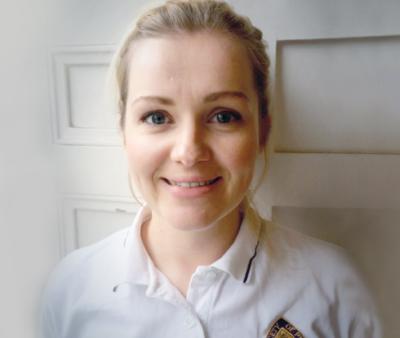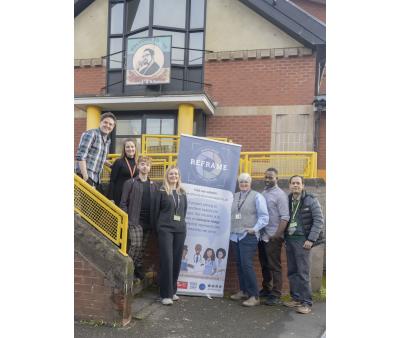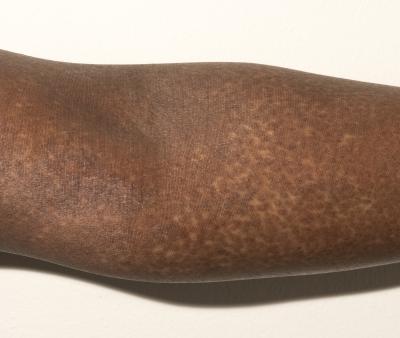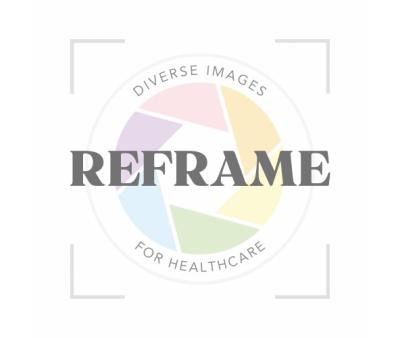Physiotherapist Debbie Hubbard is leading an NHS England-funded initiative revolutionising diversity in healthcare imagery. Robert Millett reports
Within the realm of healthcare accurate visual representations of conditions play an important role in education, diagnosis and patient care. But historically there has been a lack of diversity within the medical imagery that is actually available to healthcare students, educators and the organisations that represent them – both in the UK and across the wider western world.
This systemic ‘gap’ has not yet been bridged and may be perpetuating a host of unnecessary health inequities by limiting the analytical skills of clinicians and hindering the accurate delivery of healthcare.
Recognising that there is a critical need for change, physiotherapist Debbie Hubbard has embarked on a ground breaking initiative: the Reframe project.
In collaboration with NHS England and a dedicated team at the University of the West of England Bristol (UWE), Debbie is seeking to address the current deficiency in diverse healthcare images by creating a comprehensive digital library of photographs that can be used, both in healthcare education and in practice, to accurately show how different conditions can present in various ways among a diverse group of patients.
Debbie’s journey towards founding the project began with a realisation borne out of her own experiences as an educator and clinician. In her role as associate director at UWE she provides strategic leadership to several healthcare programmes, including the university’s undergraduate and degree apprenticeship physiotherapy programmes.
In addition to this, she also works as a student success and inclusivity champion, which has provided her with a platform to address systemic issues within healthcare education – including topics relating to equity, diversity and belonging, such as the awarding gap (the difference in degree grades of students from under-represented groups) and the decolonisation of the curriculum.
‘It came up in one of our conversations that when we look for images - for instance to put into presentations for students – we can’t find any diversity within those images,’ Debbie explains.
‘So, we thought about asking for some funding from NHS England to go and take some pictures and create a pool of diverse images.’
Developing a dual focus
Initially, Debbie and her colleagues focussed their idea solely on creating images that would show variations in the appearance of different medical conditions.
‘But then we talked about the fact that when you look for pictures of physios or other AHPs, again, they just generally tend to be quite traditional and non-diverse images,’ she says.
There’s a diversity gap, in particular, within the whole AHP sphere of images
'So, we put both of those issues together and applied for funding.’
The application process proved to be a rigorous and time-consuming process.
‘We wrote a business case, which took about a year to totally complete and then, eventually, in November 2022, we were awarded funding.’
And so, with the support of NHS England, the Reframe project was born, with an 18-month schedule and a dual focus on capturing a wide range of medical conditions across diverse skin tones and creating inclusive images of the healthcare workforce.
Reaching out to communities
After securing funding, Debbie spent the subsequent year engaged in meticulous planning, recruiting project staff and navigating complex discussions around intellectual property rights and ethics.
‘We spent quite a few months ironing out all the details and having complex discussions and contracts with collaborators,’ she recalls.
Since its official launch, the project has made significant strides in capturing a diverse range of medical conditions and healthcare professionals.
‘We’ve completed about five photoshoots so far and photographed over 50 people,’ Debbie says.
‘And for each person we have multiple images, so we’ve already collected hundreds of photographs.
‘We have a list of around 70 or so conditions that we are aiming to capture, and we’re not just looking for dermatological conditions.
‘For instance, many people have said “I can’t find any images of jaundice on darker skin”. So, our list includes a wide selection ranging from skin conditions like psoriasis, eczema and rashes, all the way through to the clinical signs for conditions like jaundice or cyanosis.’
A central tenet of the project is its commitment to community engagement and empowerment, as Debbie emphasises the importance of co-creating with communities:
What’s been really important for us as the project team is that we are directly engaging with the communities that are involved
Pop-up photography events in trusted spaces, such as the Malcolm X Community Centre in Bristol, initially helped to facilitate collaboration and build trust within local communities, and Debbie and her team have engaged with key organisations within Bristol, including the Black Southwest Network, to ensure that the project is informed by the needs and perspectives of its communities.
Explaining the impact
‘These efforts are crucial in fostering trust and ensuring that the project’s outcomes are meaningful and representative,’ Debbie says.
‘We are asking a lot of people to disclose their medical conditions and saying, “Let us take a picture of it and then put it on the internet” and of course sometimes people’s immediate responses is “Absolutely not!”.
‘But then we talk to people and explain why we’re doing it – because people like themselves are under-represented in medical images.
And when we talk about the dangerous impact of the lack of images it helps people to understand, and they can see the benefit of being involved
‘We have a podiatry student on the team who has talked about their lived experience of having a misdiagnosis because of their skin colour, and the fact that they had a prolonged, delayed diagnosis of anaemia because it was under-recognised because one of the key signs of anaemia is paleness and she has Black skin.
'Actually, her doctor was looking for something completely different because it didn’t even cross their mind that it could be anaemia.’
As well as working in community settings, the project is also aiming to expand its reach by also gaining access to patients who are willing to be photographed within clinical settings.
As Debbie explains, ‘we’ve realised that we’re only likely to ever get people who have some of the more chronic conditions, like eczema and psoriasis, attending the community pop-up events.
‘So, we’ve teamed up with some of the inner-city GP surgeries within Bristol and we are planning pop-up photography afternoons within those spaces to try to capture images of some of the more acute conditions.
‘And the medical photographers that we’re working with also work for University Hospitals Bristol and Weston NHS Trust, so we are also having conversations about how we might possibly access some of the patients within those trusts.’
Seeking verification and exploring further collaboration
Debbie says interest in the project has rocketed over the last few months, leading to more and more potential collaborators who are keen to help and be involved.
‘Awareness about this strand of the project has just sort of exploded, which has been really great for publicity.
‘For example, we’ve had the UK Health Security Agency contact us to say they could help us capture some of the more infectious kinds of conditions.’
The project also aims to collaborate with organisations such as the British Association of Dermatologists and the British Skin Foundation to validate the diagnostic accuracy of all the images they collect.
Debbie says this vetting process will help to ensure that all the images are not only diverse but also medically accurate, which will enhance their educational value.
The end product is essentially going to be an online library of images, a bit like Shutterstock, where you can download an image and it can be used within education or for marketing materials.
‘The key aims for us is that they all need to be high-quality images, with free open access – and they need to have had diagnostic verification.
‘There are some really good platforms that already exist that are trying to tackle the same problem, but they do have their limitations like, for example, some of them just have images of skin problems, while others charge for their images, and others only have images of babies and children. So, we are trying to plug all the gaps in terms of what’s already out there.’
You can get involved
CSP members living in or near Bristol are also being invited to volunteer to contribute to the project’s future photoshoots.
‘We are looking for clinicians who are available to be models,’ says Debbie.
‘We want to create more inclusive images of allied health professionals and we’re hoping for participation from not only different ethnicities, but also people from the LGBTQIA+ community and also disabled people, because those groups also don’t feature in much AHP marketing images.
‘So, anyone that wants to be involved and is local enough to the UWE campus can have a look on our website to sign up and find out more information about how to get involved.’
By participating as models or advocates for diversity in healthcare imagery, Debbie says, CSP members and other AHP volunteers could help play a crucial role in shaping the future of healthcare education and practice.
We hope the images will be able to be used for marketing professions and will help to promote a sense of belonging, because if you see yourself represented in the marketing, then you’re potentially more likely to consider something as a career option
Find Out More
Number of subscribers: 2

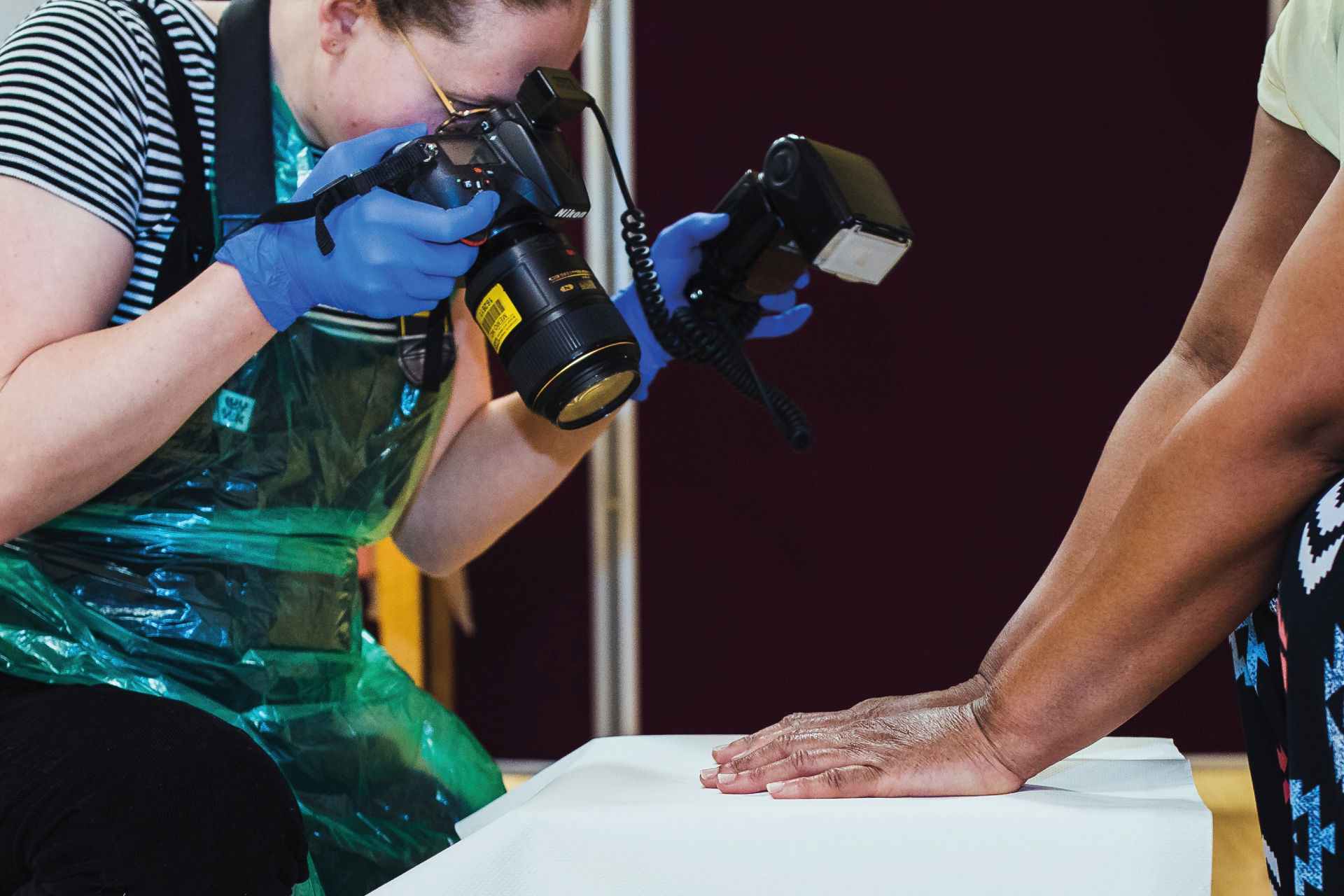
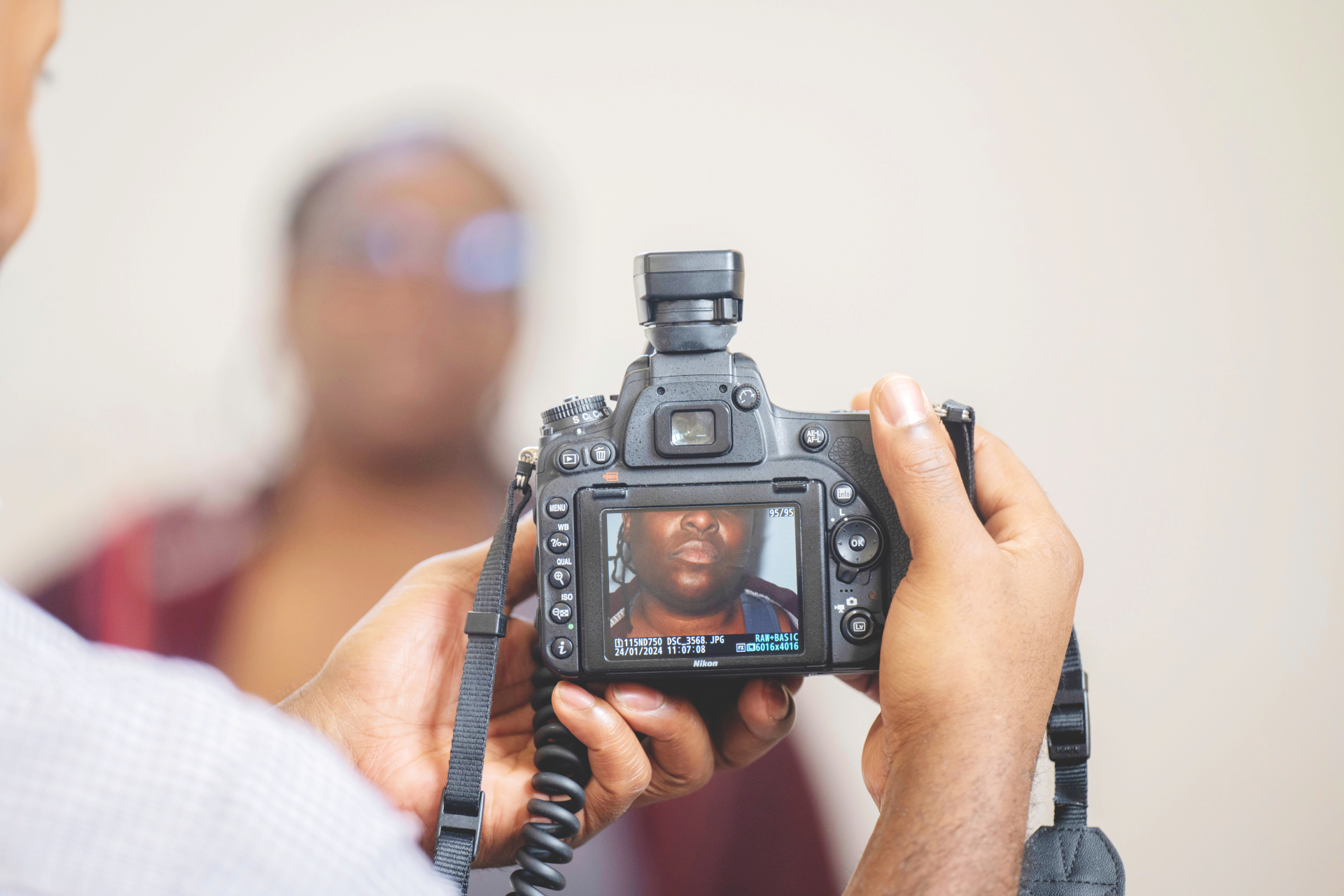
![Mother and baby photographed at a Black Mothers Matter community group [Photos: Medical Illustration at University Hospitals Bristol and Western NHS Foundation Trust]](/sites/default/files/media-image/2024-06/image010.jpg)
